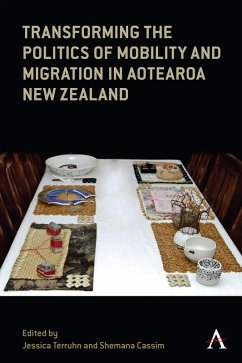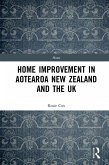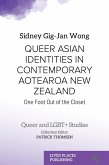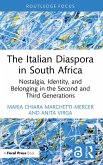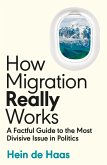Transforming the Politics of Mobility and Migration in Aotearoa New Zealand is an edited collection that explores avenues for transformational epistemologies and practices leading to a more just and ethical politics of mobility and migration. At a time of heightened securitization, rise in anti-immigrant sentiment and populism as well as increasingly exclusionary migration regimes internationally, this book presents a timely intervention. It takes a national case-based approach, focusing on Aotearoa New Zealand, where, over the past two decades, migration policy settings have created a raft of inequities and differential rights between citizens, non- and sub-citizens as well as among immigrants. The Covid-19 pandemic response has both exposed and exacerbated these issues, providing an opportune moment to appraise current policy settings and encourage transformative change.
The collection brings together leading and early career scholars, whose chapters are based on original state of the art research, and insights from practitioners in the migration sector who advocate for migrant rights. The contributors to the book critically analyse how migration management regimes (re-)produce inequities and precarities for and within migrant populations as a starting point for formulating alternative paradigms for the politics of mobility and migration. Collectively, the contributions seek to combine discussions of macro-level political processes with empirically rich insights into the intersections between migration regimes and migrant lives, aspirations and capabilities.
The multidisciplinary contributions to each part engage with the book's central remit from particular angles (including research on a range of particular migrant populations), lending both breadth and depth to the discussion. While focused on Aotearoa New Zealand, all authors consider their insights in relation to international developments, especially in the Asia Pacific region, settler societies and other Western nations.
The collection aims to advance conceptual knowledge in migration studies and fills a gap in the sparse literature on the politics of migration in Aotearoa New Zealand. While theoretically engaged and of value to the research community, the book also follows recent calls to better communicate the complexities of migration to the public and policy makers with accessible chapters that address a range of issues that will speak to a wide audience.
The collection brings together leading and early career scholars, whose chapters are based on original state of the art research, and insights from practitioners in the migration sector who advocate for migrant rights. The contributors to the book critically analyse how migration management regimes (re-)produce inequities and precarities for and within migrant populations as a starting point for formulating alternative paradigms for the politics of mobility and migration. Collectively, the contributions seek to combine discussions of macro-level political processes with empirically rich insights into the intersections between migration regimes and migrant lives, aspirations and capabilities.
The multidisciplinary contributions to each part engage with the book's central remit from particular angles (including research on a range of particular migrant populations), lending both breadth and depth to the discussion. While focused on Aotearoa New Zealand, all authors consider their insights in relation to international developments, especially in the Asia Pacific region, settler societies and other Western nations.
The collection aims to advance conceptual knowledge in migration studies and fills a gap in the sparse literature on the politics of migration in Aotearoa New Zealand. While theoretically engaged and of value to the research community, the book also follows recent calls to better communicate the complexities of migration to the public and policy makers with accessible chapters that address a range of issues that will speak to a wide audience.
Dieser Download kann aus rechtlichen Gründen nur mit Rechnungsadresse in A, D ausgeliefert werden.

